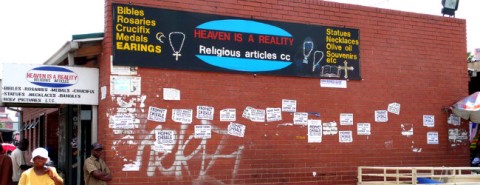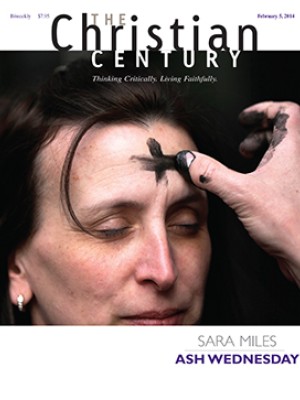Secular South Africa?

Twenty years ago, in 1994, democracy finally came to South Africa, the wealthiest and most powerful nation of sub-Saharan Africa. Most South Africans would agree that the subsequent years have been difficult, and levels of violence and poverty remain intolerably high. But the turn to majority rule was a massive political and moral achievement, to which Christian churches contributed mightily.
Beginning in the 1960s the antiapartheid cause featured centrally in Christian debates worldwide over political activism and the legitimacy of armed resistance to tyranny. Anglican archbishop Desmond Tutu became perhaps the best-known face of the antiapartheid movement.
Read our latest issue or browse back issues.
Obviously, the churches that struggled against apartheid did so from a sense of religious obligation and not with any thought of advancing their own power or influence. But with 20 years of political freedom behind us, what can we say about the religious consequences of the revolution? Who were the winners and losers? And has religious radicalism faded from political life?
Even more than in most Global South nations, South Africa’s religious statistics remain fiercely contested. A fair consensus, though, suggests that while the country remains predominantly Christian, familiar mainstream denominations are much weaker than in most of black Africa. The most successful religious movements lie on both extremes of the spectrum: among highly charismatic faith-oriented healing churches and among secularists. In religious terms, the emerging South Africa looks at once thoroughly African and surprisingly European.
Mainstream churches—the squeezed middle—claim the loyalty of about a quarter of South Africans. About 7 percent of the population are Catholic, with another 20 percent belonging to the main Protestant churches—Methodists, Anglicans, Lutherans and Dutch Reformed.
Who are the nation’s other Christians? By far the most successful are those Zionist or prophetic churches that emerged a century ago as an attempt to wrest Christianity free of white supremacy. They rooted the faith firmly in African custom, often in the context of particular tribal traditions.
In much of Africa, those older independent denominations have faded rapidly before the competition from glitzier Pentecostal churches that preach healing and prosperity. While some such groups do indeed flourish in South Africa, they coexist with these thriving independents.
Several independent groups stand out. The nation’s largest church is the Zion Christian Church, which boasts some 8 million members, a fifth of the population. Its founder, Engenas Lekganyane, is regarded by its members as the Black Messiah. Another messianic figure is Isaiah Shembe, whose Nazareth Baptist Church may have as many as 4 million adherents. Both draw heavily on Zulu traditional practices.
As in any African country, a Western observer is struck by the popularity of charismatic practices, especially spiritual healing. Witchcraft belief is very strong and widespread and sometimes leads to outbreaks of violent persecution.
At the same time, South Africans live in a remarkably secular society. The national constitution is a highly progressive document that commands strict secularism. Among other things, it was the world’s first country to enshrine gay equality in its constitution, and in 2006 it became the first African nation to legitimize same-sex marriage—and so far the only one.
Over the past decade, secular values have become steadily more popular. According to a Win-Gallup poll, between 2005 and 2012 the number of South Africans who considered themselves religious fell from 83 percent to 64 percent. Perhaps this change just represents people being freer to be candid about their lack of beliefs than in earlier years. Even so, the figures suggest a minor cultural revolution. As has often happened around the world, growing secularization affects attitudes toward family size and toward women’s roles. South Africa today has a fertility rate just above replacement levels—higher than that of the U.S., but much lower than that of most African nations.
If this were Europe, it would be tempting to extrapolate from the secular trend to predict the vanishing of religion. But the country’s social divisions make such a prediction highly unwise. South Africa is a radically polarized country, and not just in terms of race (whites make up some 9 percent of the population). Indeed, South Africa has its flourishing urban elites, who do very well on the basis of the nation’s technological orientation and its consumer boom. But it also has desperately poor people living in the slums and townships or scratching a living in the countryside, who depend on the hopes of religion to find the courage to confront everyday life. They are not going to abandon their faith.
It would not be hard to imagine a future demagogue mobilizing the poor against the privileged and using religion as part of a populist, nationalist, race-based campaign. As in much of Africa, homosexuality could easily become a symbol of Western cultural imperialism and exploitation. Secular, multicultural South Africa may turn out to be a brittle construction.






